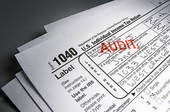According to the ABA Journal - Press reports earlier this year indicating that communications between at least one U.S. law firm and a foreign government had been monitored by the Australian equivalent of the U.S. National Security Agency triggered a series of diplomatic exchanges between the ABA and the NSA, focusing on the extent to which government surveillance will recognize the protections of the Attorney - Client Privilege.
We previously posted "Accountants & Lawyers Need To Beware of Privacy Breaches!" where we discussed that Edward Snowden, the former National Security Agency contractor who blew the whistle on the secret surveillance activities being carried out by the federal government, is warning accountants and other professionals to be concerned about the privacy of their communications.
In an interview with The Guardian, the NSA whistleblower, Edward Snowden, urged Lawyers, Journalists, Doctors, Accountants, Priests and others with a duty to Protect Confidentiality to upgrade security in the wake of the spy surveillance revelations.

"What last year's revelations showed us was irrefutable evidence that unencrypted communications on the internet are no longer safe. Any communications should be encrypted by default," he said.
Snowden's plea for the professions to tighten security came during an extensive and revealing interview with the Guardian in Moscow.
"Legal professional privilege – the right to consult a legal adviser in confidence – is a long established common law right. Its fundamental role in our legal system needs to be reasserted." The society is pressing to have existing legislation rewritten to include explicit protection for legal professional privilege from government surveillance.
In 2012, the association’s policy making House of Delegates added a provision to Rule 1.6 of the ABA Model Rules of Professional Conduct stating that “a lawyer shall make reasonable efforts to prevent the inadvertent or unauthorized disclosure of, or unauthorized access to, information relating to the representation of a client.” Language also was added to the comment to the rule offering guidance on what constitutes “reasonable efforts.”
A requirement to act competently to safeguard information relating to the representation of a client against unauthorized access by third parties and against inadvertent or unauthorized disclosure by the lawyer or other persons who are participating in the representation of the client or who are subject to the lawyer’s supervision. Unauthorized access to information relating to the representation of a client does not constitute a violation if the lawyer has made reasonable efforts to prevent the access or disclosure.
Factors to be considered in determining the reasonableness of the lawyer’s efforts include, but are not limited to:
- the sensitivity of the information,
- the likelihood of disclosure if additional safeguards are not employed,
- the cost of employing additional safeguards,
- the difficulty of implementing the safeguards, and
- the extent to which the safeguards adversely affect the lawyer’s ability to represent clients (e.g., by making a device or important piece of software excessively difficult to use).
A client may require the lawyer to implement special security measures not required by this Rule or may give informed consent to forgo security measures that would otherwise be required by this Rule.
When transmitting a communication that includes information relating to the representation of a client, the lawyer must take reasonable precautions to prevent the information from coming into the hands of unintended recipients.
This duty, however, does not require that the lawyer use special security measures if the method of communication affords a reasonable expectation of privacy. Special circumstances, however, may warrant special precautions.
Factors to be considered in determining the reasonableness of the lawyer's expectation of confidentiality include:
- the sensitivity of the information and
- the extent to which the privacy of the communication is protected by law or by a confidentiality agreement.
A client may require the lawyer to implement special security measures not required by this Rule or may give informed consent to the use of a means of communication that would otherwise be prohibited by this Rule. Whether a lawyer may be required to take additional steps in order to comply with other law, such as state and federal laws that govern data privacy, is beyond the scope of these Rules.
"How Will The IRS Know"
Read more at: Tax Times blog






